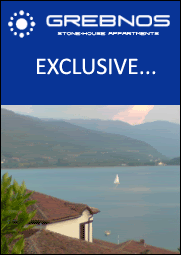CITIZENS WILL DECIDE AT REFERENDUM
National.
If an agreement on the name issue is reached with Greece, a referendum should be set up to enable the citizens to make the final decision on this.
Prime Minister Nikola Gruevski made these remarks at a press conference held on Tuesday, in response to President Branko Crvenkovski's accusations against him of shying away from the responsibility on the name issue.
"Crvenkovski can keep on with public or secret meetings, make deals and continue attacking me, I can go along with that, and even accept shared responsibility. But he mustn't forget that whatever the agreement and regardless of his or my stance, the citizens will be the ones to make the decision if a final proposal acceptable for the other side is laid on the table," Gruevski said.
The prime minister added that he asked for 24 hours to review the new proposals, but that Crvenkovski insisted for the negotiator Nikola Dimitrov and the government's representative Martin Protogjer to leave immediately for additional consultations in New York.
"Probably out of fear that we would respond to the questions the following day, Mr. Crvenkovski staged a press conference yesterday, at which he launched heinous attacks, personal accusations and slanders. I would like to ask him publicly what is the benefit of spreading negative energy and sparking quarrels over this issue, what would the country gain from such behaviour," Gruevski asked.
According to him, the country has entered the final stage in the cycle of UN brokered negotiations on the name, which adds to the importance of this round of negotiations.
"In the eve of the next round of negotiations, we have to join forces with our allies and find the best way to achieve our state and national interests," Gruevski said.
[Makfax]


























The Birth of a Clone State
THE NATIONAL HERALD, SEPTEMBER 27, 2008
The term clone is derived from κλών (klōn), the Greek word for twig or branch, referring to the process whereby a new plant can be created from a twig.
Most of us are aware of the letters sent by Former Yugoslav Republic of Macedonia (FYROM) Prime Minister Nikola Gruevski to Greek PM Karamanlis, to the President of the European Commission Jose Manuel Barroso, to the UN Secretary General Ban Ki-moon and many other world leaders raising issues of an artificial “Macedonian” ethnic minority in Greece. As Gruevski’s provocative allegations further strain relations between Greece and FYROM and the name dispute remains a hot topic for both countries, I will present a multi-part series on this subject, concentrating on events from 1870 on, while occasionally referencing ancient Greek history only to refute FYROM’s claims as they arise.
Following the veto to it’s anticipated membership at the NATO Summit in Bucharest, Romania earlier this year, FYROM’s political leadership headed by Prime Minister Gruevski is attempting to expand the dispute by provoking artificial minority issues in northern Greece, specifically in Greece’s Macedonia province.
Currently, negotiations for a permanent name for FYROM are being held under the auspices of the Special Representative of the Secretary General of the United Nations Mr. Matthew Nimetz. PM Gruevski recently dismissed all of the name proposals which Nimetz had put on the table and unilaterally derailed the negotiations. By embarking on this ethnic minority ‘witch hunt’ he is dangerously treading the diplomatic waters and heading into uncharted territory which some perceive as a suicide mission. His intentions are clear: To isolate Greece as a country which severely violates human rights, carry the dispute and claims of his fledging state within the borders of modern day Greece and as a result have Greece meet the same fate as Serbia. Gruevski is not alone in this. He has recruited lobbyists who are currently very active in the halls of Washington. Such measures can not go unheeded and as Americans of Hellenic descent it is our moral responsibility to our ancestors to stand up to the fabricators of history and help Greece deny them their expansionist ambitions.
In the coming months I will explain through a detailed sequence of events the eventual creation of a “Macedonian” nation, which is FYROM today. This state has nothing to do with the centuries-long evolutionary ethnic processes which resulted in the natural forming of other nations in the Balkan peninsula. It is a state which evolved through oppression, intimidation and persecution perpetuated by the barbarous regimes which laid its foundation.
I will start my analysis with a shocking revelation which only recently came to light. The Prime Minister of FYROM, Nikola Gruevski, has Greek roots. His grandfather, Nikolaos Grouios, was a resident of the village of Ahlada, in the prefecture of Florina, in Greece’s Macedonia province. Mr. Grouios was killed fighting the Italians a few weeks following their invasion of Greece on October 28, 1940. In the center of the village now stands a monument honoring war heroes who were residents of Ahlada. The name “Nikolaos Grouios” is clearly carved in the marble memorial.
During the final days of the Greek Civil War, as the communists retreated into Yugoslavia ousted by Greek, American and British forces, Nikolaos Grouios’ widow and her three children, one being Gruevski’s father, followed for reasons unknown the communists of the ELAS faction into Yugoslavia.
Nikola Gruevski is a perfect example of the diversified backgrounds of Greeks, Bulgarians, Albanians, Serbs, Gypsies and others who today make up the state called FYROM. Through identity theft and deception, oppression, persecution and terror, propagated by generations of deliberate misinformation and history usurpation in FYROM’s educational institutions, evolved this false perception of a Macedonian identity.
In the next segment I will explain how, starting around 1870, a pseudo-Macedonian ethnic identity evolved as part of a Bulgarian plan to annex the entire Macedonian region, coveting the shores of the northern Aegean Sea.
Posted by Anonymous |
14:05
Anonymous |
14:05
The renaming or, more precisely, the Hellenization, of the majority of toponyms is indicative of the process of homogenization attempted by the Greek state in the context of the modernization of the region and more generally the country. In fact Greek state succeed to restore original ancient Greek placenames found in classical geographical texts. On the other hand its highly hypocritical, Slavs, the same people who initially renamed ALL the original ancient Macedonian/Paeonian/Dardanian placenames to cry for the same thing they…initially did themselves.
For example,
1. Skopje
Even skopje its a changed name since it was originally founded by Dardanians as Skupi.
2. Debar
Another changed name. The first recorded document mentioning Debar is the map of Ptolemy, dating around the middle of the 2nd century, in which it is called Deborus.
3. Delcevo
Wikipedia says during Ottoman times it was called “Sultania” or “Sultaniye” and later Carevo Selo. The town was renamed its present name Delčevo in 1950.
4. Kavadarci
The name Kavadarci is derived from the Greek word, “Kavadion” which means “cape made from a valuable material”. The citizens of Kavadarci being manufacturers of this material, the first recorded use of this name was during the first half of the 19th Century.
5. Kicevo
The original ancient Illyriann name was Uskana . The town belonged to the Illyrian Penestae who inhabited the valley of the Treska/Velcka river and was mentioned for first time in the reign of Perseas, king of Macedon during the Third Macedonian War (171-169 BC). Another ancient name changed by Slavs.
6. Negotino
Negotino was known under the name of Antigoneia. It was founded by the Macedonian king Antigonus II Gonatas, in the period between 278–242 BC.
7. Gostivar
From wikipedia: “Possibly the first mention of the town was made by the Roman historian Livy. He records how during the Third Macedonian War the King of Macedon Perseus at the head of 10000 men, after taking Uskana (Kicevo), attacked Drau-Dak, today Gostivar.
8. Ochrid
Wiki: Historical names include Dassarites , land of the Dexaroi - was, in the view of Hammond an Epirot group a constituent sub-tribe of the Chaones. It was, however. the area of Epirus most subject to Illyrian pressure and was probably heavily affected by the latter. and the Greek names Lychnidos (Λύχνιδος), Ochrida (Οχρίδα) and Achrida (Αχρίδα), the latter two of which are still in modern usage.
9. Valandovo
Wiki: Evidence of life can be found beginning in the 10th-7th centuries B.C. There is a settlement known as Mal Konstantinopol (Small Constantinople) dating from Roman times, and the life in the Middle Ages is marked by Marco’s Tower. In the vicinity of the town there are also two very important archeological sites – The Isar Marvinci and the knowledge experts have on the existence of the ancient city Idomene.
10. Prilep
The site of the ancient Keramiai - a Pelagonian (and therefore Greek-speaking) town. The plain in which it dominates was known as the Keramesian Plain (Prilepsko Pole in Slavic). It was the northern part of the Pelagonian plain - the southern part, dominated by Heracleia Lynkestis/Bitola is known in Slavic as Bitolsko Pole.
11. Demi Hisar
It was known as SideroKastron when Greeks lived there. Later in Ottomantimes, the name was changed in to ”Demir Hisar” which in their language means ‘’ Iron Mountain’’. Another original greek toponymy renamed.
12. Demir-Kapija
Demir-Kapija is a place already mentioned in Classical times under the name of Stenae (Greek for gorge). In the Middle Ages it was known as a Slav settlement, under the name of Prosek, while today’s name originates from the Turkish reign, meaning “The Iron Gate”.
13. Štip
Originally an ancient Macedonian city called astibo which was renamed later to Štip.
14. Stroumica
Wiki: The town is first mentioned in II century B.C. with the name Astrayon. Later it is known by the name Tiveriopol. It got it’s present name from the slovan settlers.
15. Cepigovo
The ancient Styberra was renamed by Slavs as Cepigovo.
16. Bučin
The ancient Alkomena. Alkomena used to be one of the urban centres of Derriopos.
17. Gevgelija
The ancient Gortynia renamed into Gevgelija.
18. Titov Veles
It was known in antiquity as Bylazora.
19. Isar-Marvinci
There stood during antiquity according to archaeologists the ancient Idomenai.
20 Vardar
The ancient Bardarios was renamed in Slavic as Vardar.
21. Crna
The ancient Erigon renamed into the Slavic Crna.
Posted by Yiannis |
10:01
Yiannis |
10:01
In a referendum, the ethnic (Slav) Makedonski will probably respond like the Greek Cypriots over the Annal Plan referendum, and PM Gruevski will respond as stupidly and emotionally as (former) Cypriot president Papadopoulos: they will reject a good solution.
Posted by Anonymous |
14:56
Anonymous |
14:56
Crvenkovski has to go. Macedonia needs more leaders like Gruevski.
This whole dispute about a name has been concocted by Greece.
Greece wants nothing to do with a Macedonian identity.
We've come a long way from "There is No Macedonia or Macedonians"
to Macedonian peripheries, Macedonian airport etc.
Greece want nothing but to eradicate the Macedonians over the border AND within their borders.
That's why they did the "hot shoe shuffle" (a complete 360) and renamed everything Macedonia within their borders. Just to interfere with ROMacedonia's affairs.
Posted by Anonymous |
15:29
Anonymous |
15:29
You have nothing to do with the name Macedonia. You are just squatters on someone else's land. You fabricated your name, your history, your identity. You try to claim an entire region having occupied just a small portion of it. You're pathetic.
Posted by Anonymous |
15:46
Anonymous |
15:46
Your greek occupation of aegean macedonia started from 1913. You had nothing to do with Macedonia prior to that.
So learn your 100 years of history. Hardly a claim to a name when there are people walking around today older than that.
Leave the ancient history alone. It has nothing to do with modern greece.
Pathetic boy.
True Macedonian
Posted by Anonymous |
03:08
Anonymous |
03:08
He! He! You change the subject “true Macedonian”! So, you accept the fact that you changed names! Good because it’s true.
Since you want to abandon ancient history (good move because you had nothing to do with it), your history begins just before 20 years! You were non-existed before that. Since you define history with the existence of states then your country’s history is newer than my age.
Cheers!
Posted by Yiannis |
09:12
Yiannis |
09:12
Michelos Michelos Michelos.
Don't get too excited mate. I didn't change the topic because you stumped me. I'm just reacting to a stupid post on this blog spot.
I don't accept what you have said at all.
You used the word "modernisation" to explain the greeks behaviour for changing names. Why don't you try "ethnic cleansing", would be closer to the truth.
So we changed macedonian place names did we. Why? Part of a master plan? I think not. Maybe cause it was part of a number of different empires, roman, byzantium, ottoman. That is a logical reason. Happened over 100s of years.
Greece changed names over 2 years. So we're not comparing apples to apples are we. What was Greece's objectives in doing so in that fashion? Please explain.
Why were people's names changed?
Tomb stones destroyed?
All part of a modernization process??? Are you a stand up comedien or somthing?
Our Macedonian name is part of a Macedonia in existence for 1000s of years. The interruptions was during 1913 to 1945 when the british and french allowed a separation. Serbia pickup ROMacedonia. We liberated it from them to restore back to what it was with the help of Tito.
Tito allowed us to have our own state within Yugoslavia because of the historical heritage.
The serbs wanted a unified serbian state including macedonia, bosnia, Kosovo, Montenegro etc. They wanted too much. It was never going to work and bound to fail.
At least you can say greece was smart. They changed places, names, population swaps etc. forced homogenation and not recognising RoMacedonians. That is why there is very little friction from your part.
I have to hand it to you guys. Well done.
Michelos, your just one of their puppets.
True Macedonian.
Posted by Anonymous |
12:12
Anonymous |
12:12
So, you decide that your reason is logical and ours is not. Without any other explanation.. Right... :)
Your name change (and ours) occurred after the liberation of our (and yours) territories from the Turks. During the Turkish occupation, Bitola was Monastir. You made it Bitola after liberating it(or should I say occupying? You like to use this word).
So, while the result is the same, your motives were poor and ours were malicious! You simply can-not accept the fact that you also behaved in a similar way!
That’s FYROM logic.
Everything FYROM does is good.
Everything Greece does is bad.
Soon you will learn not to trust your politicians so much. Now you are a very young democracy to know about.
Posted by Yiannis |
12:26
Yiannis |
12:26
Post a Comment